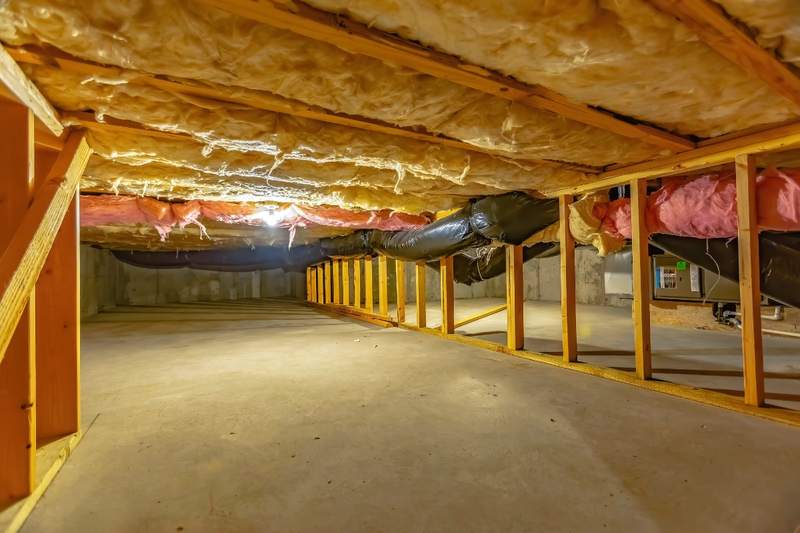
If you’re a first-time homebuyer browsing for-sale listings, you may have seen homes listed as “under contract” and wondered what that means. Has the home already been sold? Or is it still available?
In simple terms, under contract means that the seller has accepted a buyer’s offer, but the sale has not closed.
‘Under Contract’ Defined
Under contract means that a buyer has entered into a legally binding purchase and sale agreement with the seller. Once that contract is signed, the buyer usually pays earnest money — typically 1% to 3% of the home purchase price — to show the seller they’re serious about the transaction, and the seller takes the property off the market.
While the home is under contract, it will be appraised and inspected, and the buyer will apply for a mortgage. If everything checks out, the buyer and seller gather with their real estate agents on closing day to sign the paperwork and finalize the sale.
‘Under contract’ vs. ‘sale pending’: What’s the difference?
The terms “under contract” and “sale pending” sound like they mean the same thing, but there’s a key difference. While under contract just indicates that the buyer and seller have signed a purchase and sale agreement, sale pending typically means that the home has cleared any contingencies and is ready to close. If a home is under contract, the deal still could fall through — usually because the buyer backs out — but sale pending usually means the sale is about to close, and that you should move on.
What does ‘active under contract’ mean?
In some places, the term “active under contract” is used in place of “under contract.” These two terms mean the same thing and can be used interchangeably.
Can You Make an Offer on a Home That’s Under Contract?
You can make an offer on a home that’s under contract. After all, the home sale isn’t official until closing day, which means either party can change their mind and get out of the contract before then. However, even if your offer is larger than the first buyer’s, the seller has entered an agreement with them and can face legal action and penalties for backing out. Still, the seller might welcome a backup offer in case the deal with their initial buyer falls through.
How Often Do Contracts Fall Through?
The odds of a contract falling through depends on market conditions and the parties involved. As a general rule, if it’s a seller’s market — where demand exceeds the supply of available homes — then it’s less likely the deal will fall through. According to a May 2023 study from the National Association of Realtors, only 5% of purchase agreements fell through before closing in the prior three months.
Why Do Contracts Fall Through?
There are many reasons to back out of buying a home for both the seller and the buyer.
Some reasons why a seller might want to cancel the deal include:
- The property appraised for a higher value than the buyer’s offer.
- The seller received a higher offer.
- They changed their mind and no longer want to sell the home.
- They are unable to find a new home.
Buyers who back out of the deal simply may have had a change of heart, but there also are some good reasons for doing so, including:
- The inspection reveals a serious flaw in the home that the buyer hadn’t known about.
- The home appraises for substantially less than the purchase price.
- The buyer is unable to secure financing.
- The title search reveals a claim or a lien against the property.
- The buyer is unable to sell their previous home.
In many cases, a buyer who backs out of the deal will be forced to give up their earnest money. However, if the buyer cancels the deal because a contingency in the purchase and sale agreement isn’t met, then they can walk away and keep their deposit.
It’s more common for the buyer than the seller to back out of a sale.
Common contingencies
Contingencies are conditions that must be met for the sale to be finalized. Buyers may include contingencies in their offer to protect themselves if something unexpected happens before closing. If any contingencies in the agreement are unmet, then the buyer can cancel the sale without losing their earnest money.
Here are some common contingencies in homebuying.
Inspection contingency
The inspection contingency lets the buyer cancel the sale if the home inspection reveals serious flaws, damage, or safety hazards. The buyer first may want to work with the seller on renegotiating the deal to compensate, but if an agreement can’t be reached, then they can cancel the deal without penalty.
Appraisal contingency
Mortgage lenders require a home appraisal to verify that the fair market value of the home justifies the borrower’s loan amount. Lenders refuse to lend buyers more than a home is worth, so if the appraisal comes back lower than the purchase price, the buyer would need to make up the difference or use the appraisal contingency to cancel the deal.
Financing contingency
If the buyer is unable to get a mortgage, a financing contingency lets them cancel the deal.
Home sale contingency
If a buyer needs to sell their current home to afford the next one, and cannot complete a sale before the deadline set by a home sale contingency, then they can cancel the deal without penalty.
Bidding On a Home That’s Under Contract
If you want to make an offer on a home that’s under contract, it helps to offer more than the asking price. You’ll provide not only a nice backup option for the seller, but also a way for them to make more money on their home if the current sale falls through.
FAQ
Here are answers to some frequently asked questions about homes that are under contract.











